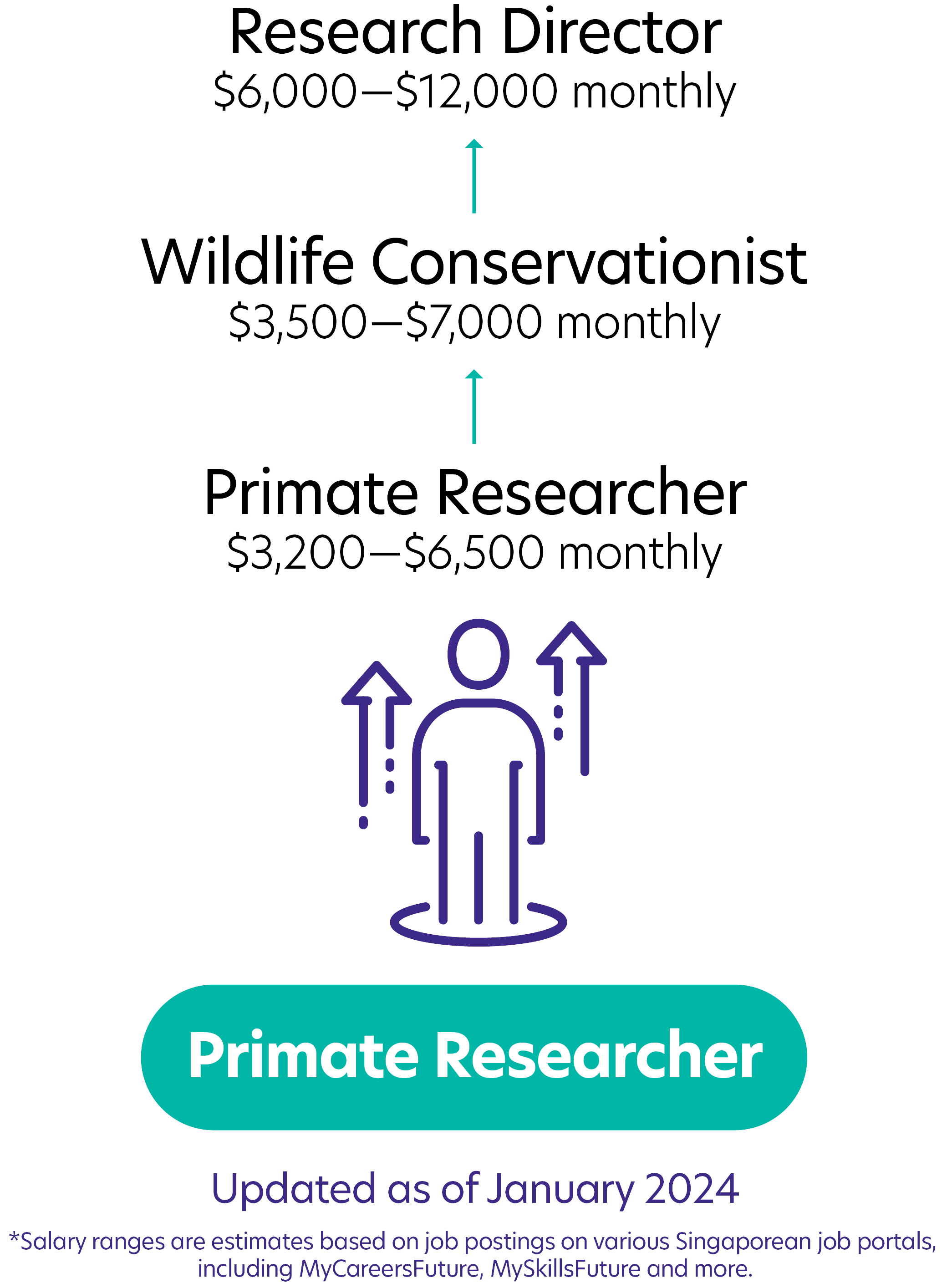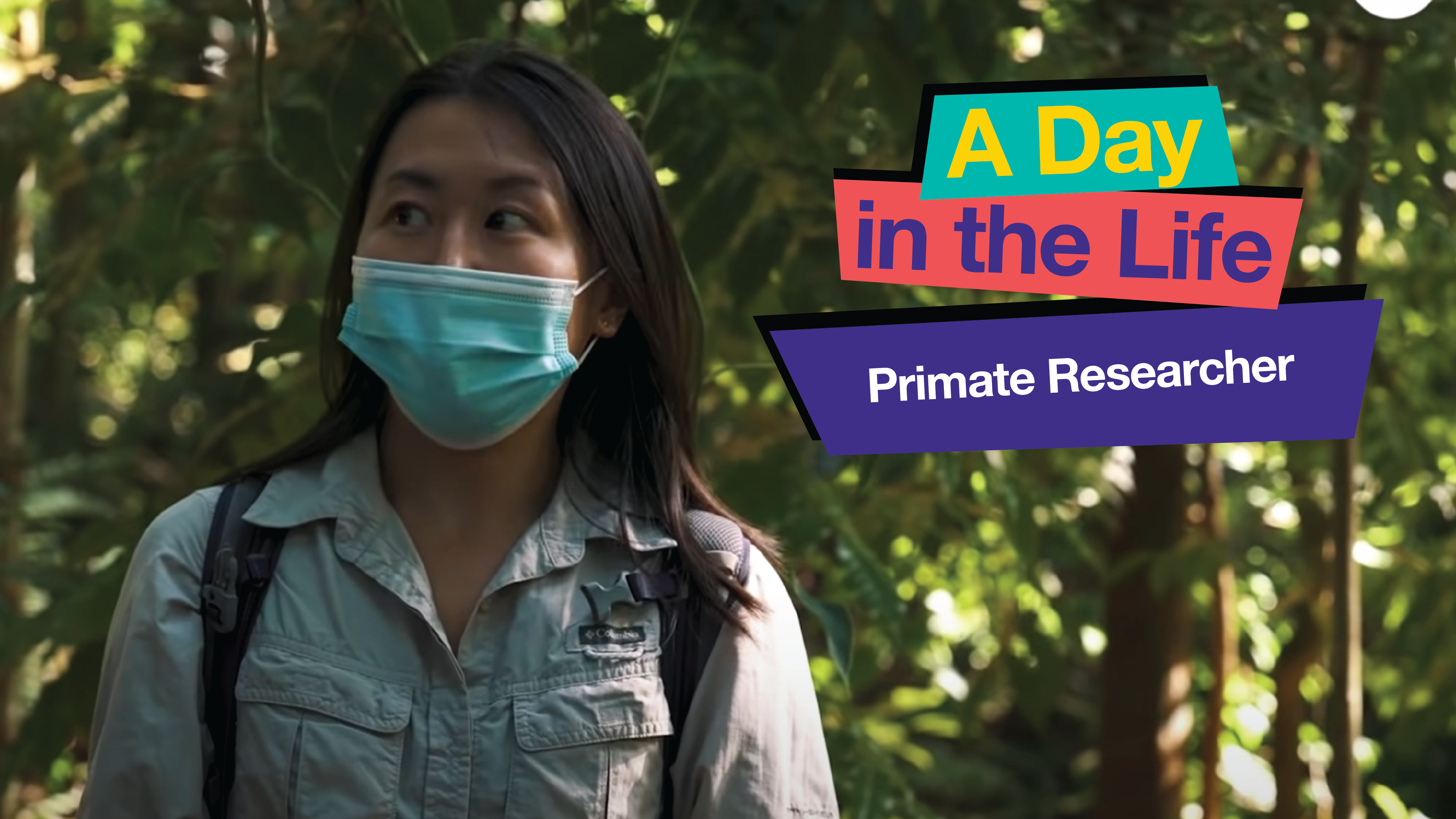
Primate Researchers, also known as Primatologists, study both living and non-living Primates in their natural environment. They may be required to conduct field experiments to understand their evolution and behaviours.
Primate Researcher Job Description
- Perform diagnostic testing on non-human Primate blood, faeces, urine, and other samples.
- Plan research studies and publish findings in scientific journals.
- Study Primates to understand the social interactions, communication patterns, and behaviours of Primates in the wild and captivity.
- Investigate how habitats and environmental changes affect Primates over time.
- Analyse behavioural data from other Primate Researchers.
- Conduct fieldwork for extended periods in Primate habitats, observing and recording their behaviour, diet, and interactions.
Note
Currently, the three non-human Primate species in Singapore are considered either vulnerable or critically endangered. As Primate Researchers, your work will help shed light on the importance of Primate conservation efforts.
What you should know about Primate Researcher jobs in Singapore
Nature of Work
As Primate Researchers, your job scope depends on where your interest lies. You might study the behaviours of non-human Primates in zoos and centres.Key Advice
Stay endlessly curious about Primate behaviour, Ecology, and conservation. Your passion will fuel groundbreaking research and discoveries.-
Entry RequirementsEntry Requirements
- Degree in Zoology, Wildlife Biology, Psychology, Anthropology, or related field.
- Most Primate Researchers are encouraged to further pursue Masters/PhD to advance in the field.
- Fieldwork or research experience with Primates, including studies on behaviour, diet, or conservation.
- Proficiency in statistical analysis software (e.g., R, SPSS) for research data interpretation.
- Familiarity with Geographic Information Systems (GIS) tools for habitat and population studies.
- Knowledge of international and Singapore-specific wildlife conservation laws and ethics.
- Publication of research findings in peer-reviewed journals or presentations at relevant scientific conferences.
-
Possible PathwayPossible Pathway

Skills you need to pursue a Primate Researcher career in Singapore
 Hard Skills
Hard Skills
Familiarity with Geographic Information Systems (GIS)
Knowledge of GIS software for analysing data related to Primate habitats.Data Analysis Software
Skilled in using software tools for statistical analysis and interpretation of research data.Ability to deal with animals
Competent and able to give comfort when handling and interacting with Primates.Ability to Work in a Team
Effective collaboration with research teams, conservation groups, and local communities.Analytical Skills
Strong problem-solving abilities to interpret data and derive conclusions from research findings.Passion for Learning
A continuous desire to expand knowledge about Primatology, conservation, and new research methodologies.
“We take photographs of the primates to try to identify individuals and monitor their growth.”
Andie, Research Scientist
Explore Other Programmes
Browse AllYou have bookmarked your first item!
Find it in My Discoveries with insights on your interests!





